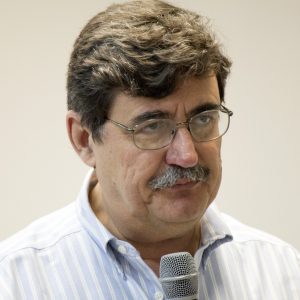 Baha Balantekin, the Eugene P. Wigner Professor of Physics at the University of Wisconsin–Madison, has been elected Speaker of the Council for the American Physics Society (APS). He will serve as Speaker-elect in 2020, Speaker in 2021, and Speaker Emeritus in 2022.
Baha Balantekin, the Eugene P. Wigner Professor of Physics at the University of Wisconsin–Madison, has been elected Speaker of the Council for the American Physics Society (APS). He will serve as Speaker-elect in 2020, Speaker in 2021, and Speaker Emeritus in 2022.
The APS Speaker of the Council presides over the Council, a body of elected leadership within the professional society. The Speaker also serves on the APS Board of Directors as well as presiding over the Council’s Steering Committee.
“It is an honor to be elected, for me and for the UW,” Balantekin says. “Speaker of the Council is another public face of APS besides the Presidential line.”
APS is the professional society of not only physicists in the United States, but also has a worldwide membership. According to the mission statement, APS exists to advance and diffuse the knowledge of physics for the benefit of humanity, to promote physics, and to serve the broader physics community. APS relies on volunteers to serve in leadership positions, such as Speaker of the Council, to advance its mission.
“Having Prof. Balantekin in the leadership role in the American Physics Society is a matter of pride for our department, and we are happy to share his leadership skills with the wider physics community,” says Sridhara Dasu, chair of the UW–Madison department of physics.
Balantekin was elected to the role at the annual election meeting of the APS Board and Council, held in early November 2019. He has been a Fellow of APS since 1994. He is currently completing his second year on the Council of Representatives and his first year on the Board of Directors, to which he was elected last year.